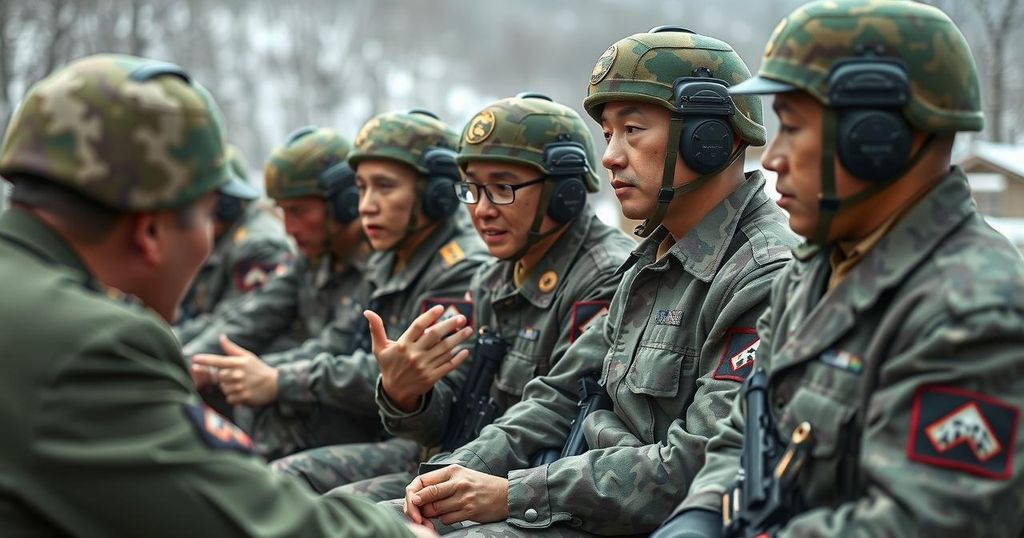Former North Korean soldiers recount the severe malnutrition and rigorous conditions they faced during military service, shedding light on the 11,000 troops currently deployed to support Russia in Ukraine. Despite being part of the elite Storm Corps, the soldiers lack contemporary warfare training, raising questions about their effectiveness in combat. Their loyalty to the regime, coupled with strict orders against desertion, complicates any hopes of defection or capture by Ukrainian forces.
Haneul’s memories of his time in the North Korean military are overshadowed by relentless hunger, leading him to lose significant weight in his initial month. Despite being considered part of the best-fed unit, he witnessed severe malnutrition among his battalion. With around 11,000 troops reportedly sent to support Russian forces in Ukraine, military defectors speculate about their effectiveness. While these soldiers belong to the elite Storm Corps and possess ‘high morale,’ they are believed to lack contemporary warfare knowledge. Observations of frail soldiers in online footage contrast sharply with the robust figures depicted in North Korean propaganda.
One defector estimates their training pales compared to modern military standards, citing limited live-fire experience and obsolete combat preparation. Food scarcity continues to be a pressing issue, as training remains harsh and resources are dwindling. The dynamics of warfare in the flatlands of Kursk differ significantly from their mountainous training grounds. Moreover, most North Korean soldiers are said to hail from humble backgrounds, instilling in them an unwavering loyalty to the regime. Ideological indoctrination ensures they are mentally prepared to follow orders without question.
Past assessments suggest that, despite their inadequacies, the troops will acclimate to combat conditions. Former commanders in South Korea assert that these soldiers should not be underestimated, given their steadfast obedience and commitment to the North Korean regime. Additionally, the potential for further reinforcements from Pyongyang looms, as they could deploy an even larger segment of their forces.
Efforts by Ukraine and South Korea to encourage defection are likely thwarted by strict orders against desertion. Captivity is considered dishonorable within North Korean culture, leading soldiers to prioritize self-harm over surrender. Nevertheless, defectors express a desire to intervene and connect with the soldiers, although the risks and challenges of such initiatives persist. Haneul reflects on the plight of his fellow soldiers, hoping for their safe return to North Korea despite the harrowing environment they face.
The article discusses the experiences and challenges faced by former North Korean soldiers, particularly in the context of their recent deployment to support Russian military efforts in Ukraine. It highlights how these soldiers, even from elite units like the Storm Corps, suffer from malnutrition and lack the training necessary for modern warfare. The information is derived from defectors who provide insight into the stark reality of military life in North Korea compared to the idealized images propagated by the regime. Through firsthand accounts, the article explores the soldiers’ desperation, loyalty, and the harsh conditions that define their service.
In conclusion, the article illustrates the complexities surrounding the deployment of North Korean troops to Russia’s conflict in Ukraine. Despite their elite status, factors such as malnutrition, inadequate training, and rigid ideological indoctrination present significant challenges for their effectiveness. The unwavering loyalty of these soldiers to the regime may fuel their combat readiness, yet the stark realities they face raise questions about their ability to adapt. As potential reinforcements loom, the intricate dynamics of their loyalty and the cultural stigma attached to surrender present substantial barriers for both military engagement and efforts towards defection.
Original Source: www.bbc.com






